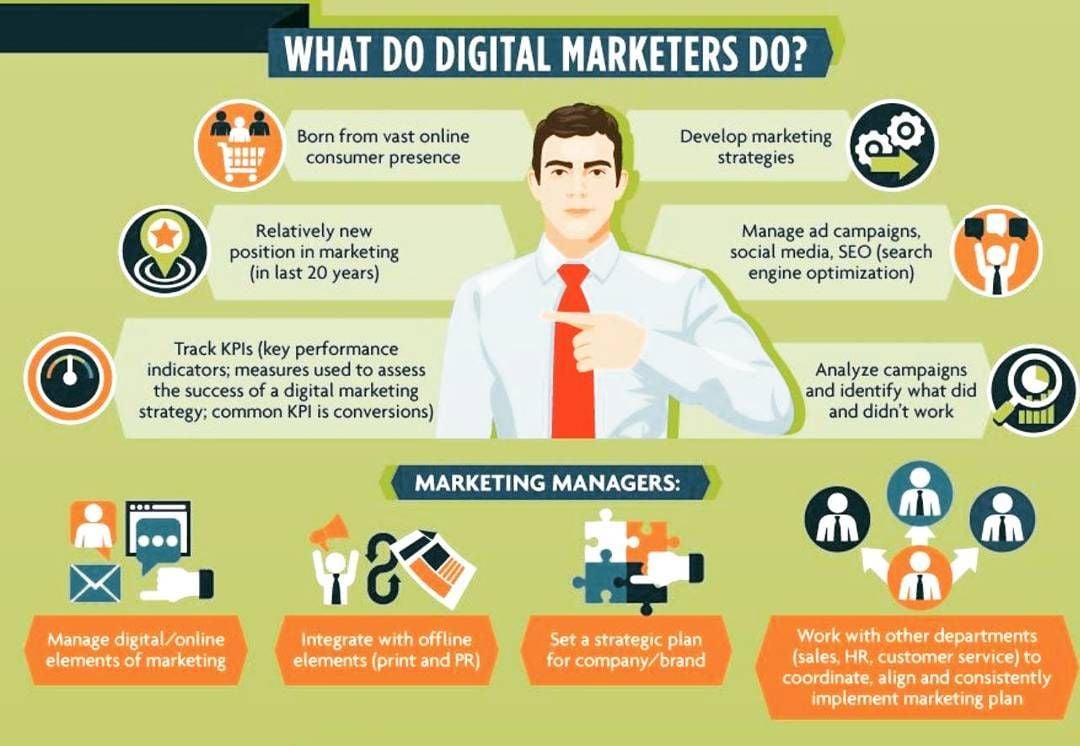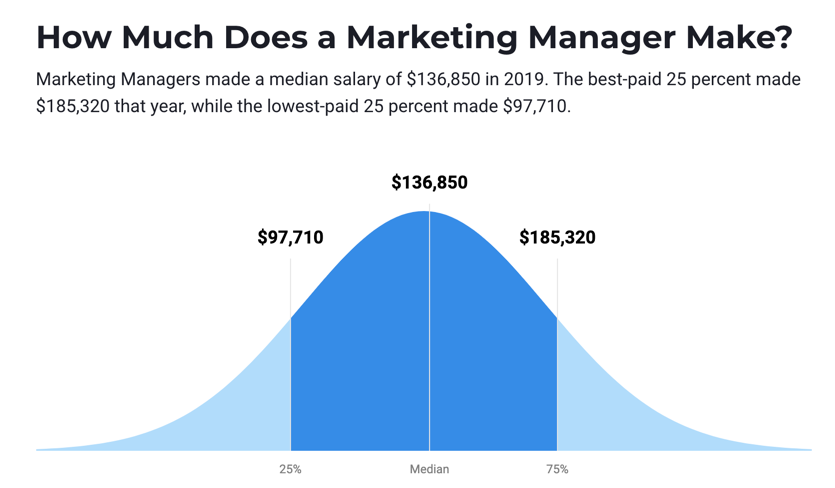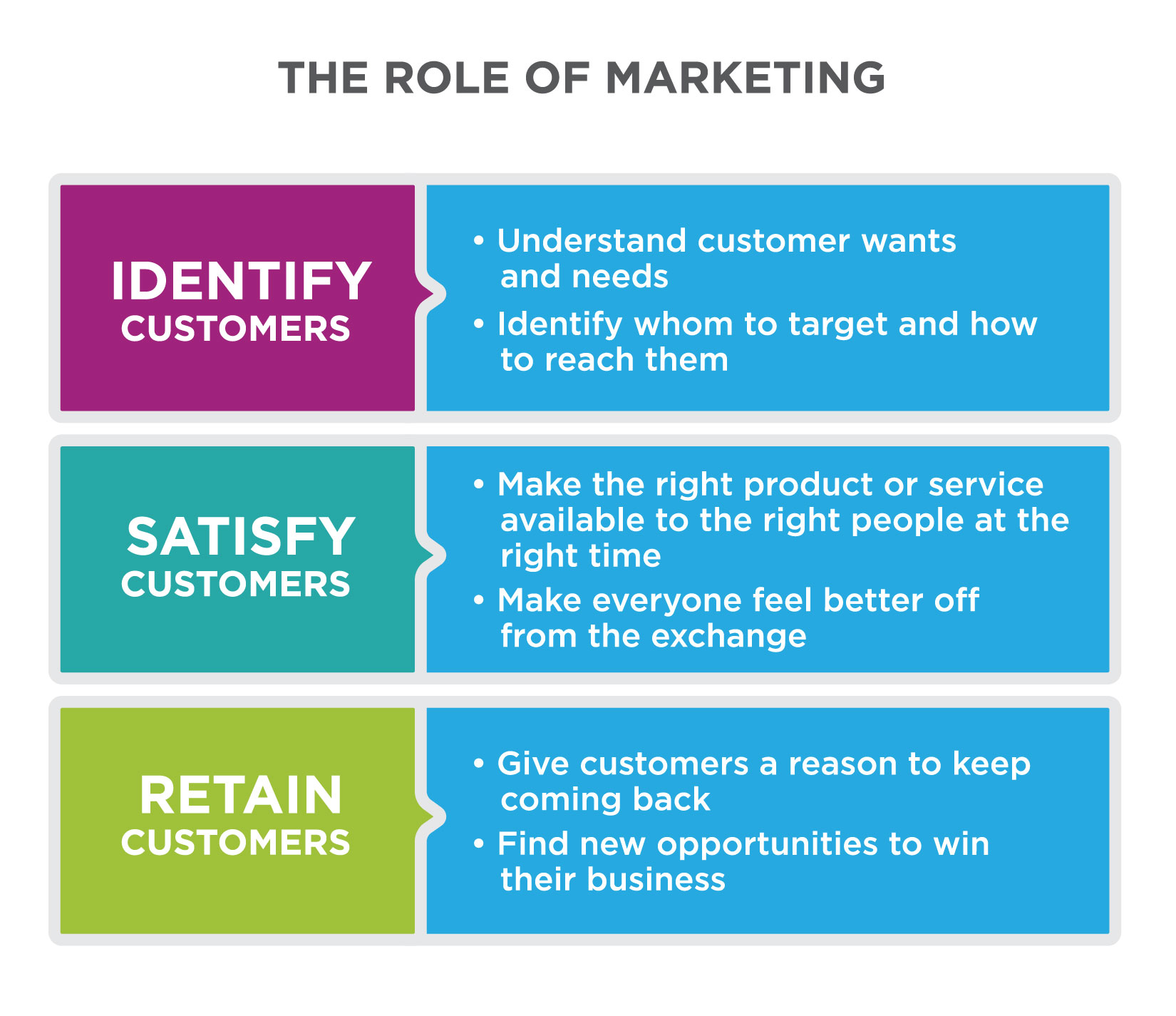In large corporations, marketers play a pivotal role in driving business growth and maintaining brand relevance. Their responsibilities span a wide range of activities, from conducting market research and analyzing consumer behavior to developing strategic campaigns that resonate with target audiences. Marketers collaborate across departments to ensure consistent messaging and align efforts with overarching business goals. They leverage data-driven insights to optimize advertising, enhance customer engagement, and maximize return on investment. Additionally, they stay ahead of industry trends, adapt to evolving technologies, and navigate competitive landscapes. Ultimately, marketers in big companies act as the bridge between the brand and its customers, shaping perceptions and fostering long-term loyalty.
What Do Marketers Do in Big Companies?
Marketers in big companies play a crucial role in driving business growth, building brand awareness, and connecting with customers. Their responsibilities are diverse and often involve strategic planning, data analysis, and creative execution. Below, we explore the key functions and roles of marketers in large organizations.
See Also What Are High Paying Marketing/Advertising Jobs?
What Are High Paying Marketing/Advertising Jobs?1. Developing Marketing Strategies
Marketers in big companies are responsible for creating comprehensive marketing strategies that align with the company’s overall goals. This involves identifying target audiences, setting objectives, and determining the best channels to reach customers. They often conduct market research to understand consumer behavior and trends, which helps in crafting effective campaigns.
2. Managing Brand Identity
A strong brand identity is essential for big companies, and marketers are tasked with maintaining and enhancing it. This includes designing brand guidelines, ensuring consistent messaging across all platforms, and creating campaigns that resonate with the target audience. Marketers also monitor how the brand is perceived and make adjustments as needed.
See Also What's Your Salary as a Marketing Manager/Senior Marketing Manager?
What's Your Salary as a Marketing Manager/Senior Marketing Manager?3. Executing Digital Marketing Campaigns
In today’s digital age, marketers focus heavily on digital marketing. This includes managing social media accounts, running paid advertising campaigns, optimizing SEO, and creating email marketing strategies. They use analytics tools to measure the success of these campaigns and make data-driven decisions to improve performance.
4. Analyzing Data and Metrics
Data analysis is a critical part of a marketer’s role in big companies. They track key performance indicators (KPIs) such as conversion rates, click-through rates, and customer engagement. By analyzing this data, marketers can identify what’s working, what’s not, and where improvements can be made.
See Also What's your favorite client portal software?
What's your favorite client portal software?5. Collaborating with Other Departments
Marketers often work closely with other departments, such as sales, product development, and customer service. This collaboration ensures that marketing efforts are aligned with the company’s overall objectives and that the customer experience is seamless across all touchpoints.
| Key Responsibility | Description |
|---|---|
| Market Research | Analyzing consumer behavior and market trends to inform strategies. |
| Brand Management | Ensuring consistent and impactful brand messaging. |
| Digital Campaigns | Executing and optimizing online marketing efforts. |
| Data Analysis | Tracking KPIs and using insights to improve performance. |
| Cross-Department Collaboration | Working with other teams to align marketing with business goals. |
What does a marketer do in a company?

 What's a Good Digital Asset Management Software?
What's a Good Digital Asset Management Software?Understanding the Role of a Marketer
A marketer in a company is responsible for promoting the company's products or services to potential customers. They use various strategies to increase brand awareness, generate leads, and drive sales. Their role involves understanding the market, identifying customer needs, and creating campaigns that resonate with the target audience.
- Market Research: Conducting research to understand market trends, customer preferences, and competitor strategies.
- Campaign Development: Designing and implementing marketing campaigns across different channels such as social media, email, and print.
- Performance Analysis: Monitoring and analyzing the effectiveness of marketing campaigns to make data-driven decisions.
Developing Marketing Strategies
Marketers are tasked with developing comprehensive marketing strategies that align with the company's goals. This involves setting clear objectives, identifying target audiences, and selecting the most effective marketing channels.
See Also GTM (Go to Market Strategy) Team and Role?
GTM (Go to Market Strategy) Team and Role?- Goal Setting: Defining clear and measurable marketing objectives that support the company's overall business goals.
- Audience Segmentation: Dividing the target market into distinct groups based on demographics, behavior, and preferences.
- Channel Selection: Choosing the most appropriate marketing channels, such as digital, traditional, or a mix of both, to reach the target audience effectively.
Creating and Managing Content
Content creation is a crucial aspect of a marketer's role. They produce engaging and relevant content that attracts and retains customers, ultimately driving profitable customer action.
- Content Planning: Developing a content calendar that outlines the topics, formats, and publishing schedule.
- Content Production: Creating high-quality content, including blog posts, videos, infographics, and social media updates.
- Content Distribution: Sharing content across various platforms to maximize reach and engagement.
Building Brand Awareness
Marketers play a key role in building and maintaining the company's brand. They ensure that the brand is consistently represented across all marketing materials and channels.
- Brand Identity: Developing a strong brand identity that reflects the company's values and mission.
- Consistent Messaging: Ensuring that all marketing communications convey a consistent brand message.
- Reputation Management: Monitoring and managing the company's online and offline reputation to maintain a positive brand image.
Analyzing and Reporting
Marketers are responsible for analyzing the performance of their campaigns and reporting the results to stakeholders. This helps in understanding what works and what needs improvement.
- Data Collection: Gathering data from various sources, including website analytics, social media metrics, and customer feedback.
- Performance Metrics: Using key performance indicators (KPIs) to measure the success of marketing campaigns.
- Reporting: Creating detailed reports that provide insights into campaign performance and recommendations for future strategies.
Do marketers make a lot of money?

How Much Do Marketers Earn on Average?
The income of marketers varies widely depending on factors such as experience, industry, and location. On average, entry-level marketers can expect to earn between $40,000 and $60,000 annually, while experienced professionals in managerial roles can earn upwards of $100,000 or more. Specialized roles like digital marketing managers or data-driven marketers often command higher salaries due to their technical expertise.
- Entry-level marketers typically earn between $40,000 and $60,000 annually.
- Mid-level marketers with 5-10 years of experience can earn between $60,000 and $90,000.
- Senior marketers or those in leadership roles often earn $100,000 or more.
What Factors Influence a Marketer's Salary?
Several factors determine how much a marketer earns, including their skill set, the industry they work in, and their geographic location. For instance, marketers in tech or finance industries tend to earn more than those in non-profit sectors. Additionally, professionals with certifications in areas like SEO, PPC, or data analytics often have higher earning potential.
- Industry: Tech and finance sectors offer higher salaries.
- Location: Urban areas with higher costs of living often pay more.
- Certifications: Specialized skills can significantly boost income.
Do Freelance Marketers Earn More Than In-House Marketers?
Freelance marketers have the potential to earn more than in-house marketers, but this depends on their ability to secure consistent clients and manage their workload effectively. Freelancers can charge hourly rates ranging from $50 to $200 or more, depending on their expertise. However, they must also account for expenses like taxes, healthcare, and marketing tools, which can reduce their net income.
- Hourly rates for freelancers range from $50 to $200+.
- Expenses like taxes and tools can impact net earnings.
- Client acquisition is crucial for maintaining steady income.
What Are the Highest-Paying Marketing Roles?
Certain marketing roles are known for offering higher salaries due to their specialized nature. For example, Chief Marketing Officers (CMOs) and Digital Marketing Directors often earn six-figure salaries. Roles that require expertise in data analysis, such as Marketing Data Scientists, are also highly lucrative due to the growing importance of data-driven decision-making in marketing.
- CMOs and Digital Marketing Directors often earn six figures.
- Marketing Data Scientists are in high demand.
- Technical expertise in analytics or automation can increase earning potential.
Can Marketers Earn Passive Income?
Yes, marketers can generate passive income through various channels, such as creating online courses, writing eBooks, or affiliate marketing. By leveraging their expertise, marketers can build streams of income that require minimal ongoing effort. For example, a marketer who creates a popular course on digital marketing can earn royalties for years after the initial creation.
- Online courses and eBooks can generate long-term income.
- Affiliate marketing allows marketers to earn commissions passively.
- Content creation can lead to recurring revenue streams.
What does a marketer do all day?

Planning and Strategizing Campaigns
A marketer spends a significant portion of their day planning and strategizing campaigns to achieve business goals. This involves analyzing market trends, identifying target audiences, and setting measurable objectives. Key activities include:
- Researching competitors and industry trends to stay ahead.
- Developing marketing strategies tailored to specific audiences.
- Setting budgets and timelines for campaigns.
Creating and Managing Content
Content creation is a core responsibility for marketers. They produce engaging and relevant content to attract and retain customers. This includes:
- Writing blog posts, social media updates, and email newsletters.
- Designing visuals like infographics, videos, and ads.
- Editing and proofreading content to ensure quality and consistency.
Analyzing Data and Metrics
Marketers rely on data analysis to measure the success of their campaigns. They use tools like Google Analytics and CRM software to track performance. Daily tasks include:
- Monitoring key performance indicators (KPIs) such as conversion rates and ROI.
- Identifying trends and patterns in customer behavior.
- Adjusting strategies based on data insights to optimize results.
Engaging with Customers and Building Relationships
Building strong relationships with customers is essential for marketers. They focus on engagement and communication to foster loyalty. Activities include:
- Responding to customer inquiries and feedback on social media and email.
- Hosting webinars, live chats, or Q&A sessions to interact directly with the audience.
- Collaborating with customer service teams to address concerns and improve satisfaction.
Collaborating with Teams and Stakeholders
Marketers work closely with various teams and stakeholders to ensure alignment and achieve goals. This involves:
- Coordinating with sales teams to align marketing efforts with sales objectives.
- Meeting with designers, writers, and developers to execute campaigns.
- Presenting reports and updates to senior management or clients.
What is the role of marketing in the company?

The role of marketing in a company is to create, communicate, and deliver value to customers while building strong relationships to achieve organizational goals. It involves understanding customer needs, developing products or services that meet those needs, and promoting them effectively to drive sales and brand loyalty. Marketing also plays a critical role in shaping the company's image, positioning it in the market, and ensuring long-term growth.
Understanding Customer Needs
Marketing helps companies identify and understand the needs and preferences of their target audience. This involves:
- Conducting market research to gather insights about customer behavior and trends.
- Analyzing data to identify gaps in the market and opportunities for innovation.
- Creating customer personas to tailor products and services to specific demographics.
Developing and Promoting Products
Marketing ensures that products or services are designed to meet customer demands and are effectively promoted. This includes:
- Product development based on customer feedback and market trends.
- Branding and packaging to create a unique identity and appeal to the target audience.
- Advertising and campaigns to increase awareness and drive sales.
Building Brand Awareness and Loyalty
Marketing plays a key role in establishing and maintaining a strong brand presence. This involves:
- Creating consistent messaging across all platforms to reinforce brand identity.
- Engaging with customers through social media, email marketing, and other channels.
- Offering loyalty programs to retain customers and encourage repeat business.
Driving Sales and Revenue
Marketing strategies are designed to attract customers and convert leads into sales. This includes:
- Implementing pricing strategies that align with market demand and competition.
- Using digital marketing tools like SEO, PPC, and social media ads to reach a wider audience.
- Tracking performance metrics to optimize campaigns and maximize ROI.
Shaping Market Positioning
Marketing helps companies differentiate themselves from competitors and establish a unique position in the market. This involves:
- Conducting competitor analysis to identify strengths and weaknesses.
- Developing a unique value proposition that highlights the company's advantages.
- Communicating the brand's story to connect emotionally with customers.
Frequently Asked Questions from Our Community
What are the primary responsibilities of marketers in big companies?
Marketers in big companies are responsible for developing and executing strategies to promote products or services. This includes conducting market research to understand customer needs, analyzing competitors, and identifying trends. They also create marketing campaigns across various channels, such as digital, social media, and traditional advertising, to reach target audiences. Additionally, they collaborate with sales, product development, and other departments to ensure alignment with overall business goals.
How do marketers contribute to brand building in large organizations?
Marketers play a crucial role in building and maintaining a strong brand identity. They develop brand guidelines to ensure consistency across all communications and touchpoints. By crafting compelling brand stories and messaging, they help establish an emotional connection with customers. Marketers also monitor brand perception through surveys, social media listening, and other tools, making adjustments as needed to strengthen the brand's reputation and loyalty.
What role do marketers play in driving revenue growth?
Marketers are instrumental in driving revenue growth by identifying and targeting high-value customer segments. They use data-driven insights to optimize marketing efforts, ensuring that campaigns generate maximum ROI. Through lead generation and nurturing strategies, they help convert prospects into paying customers. Marketers also work on upselling and cross-selling initiatives, encouraging existing customers to purchase additional products or services, thereby increasing lifetime customer value.
How do marketers measure the success of their campaigns in big companies?
Marketers measure campaign success using a variety of key performance indicators (KPIs), such as conversion rates, customer acquisition costs, and return on ad spend (ROAS). They leverage analytics tools to track website traffic, engagement metrics, and sales data. Additionally, they conduct A/B testing to refine strategies and improve outcomes. Regular reporting and analysis help marketers understand what works and what doesn’t, enabling them to make data-backed decisions for future campaigns.
Leave a Reply


Articles of interest